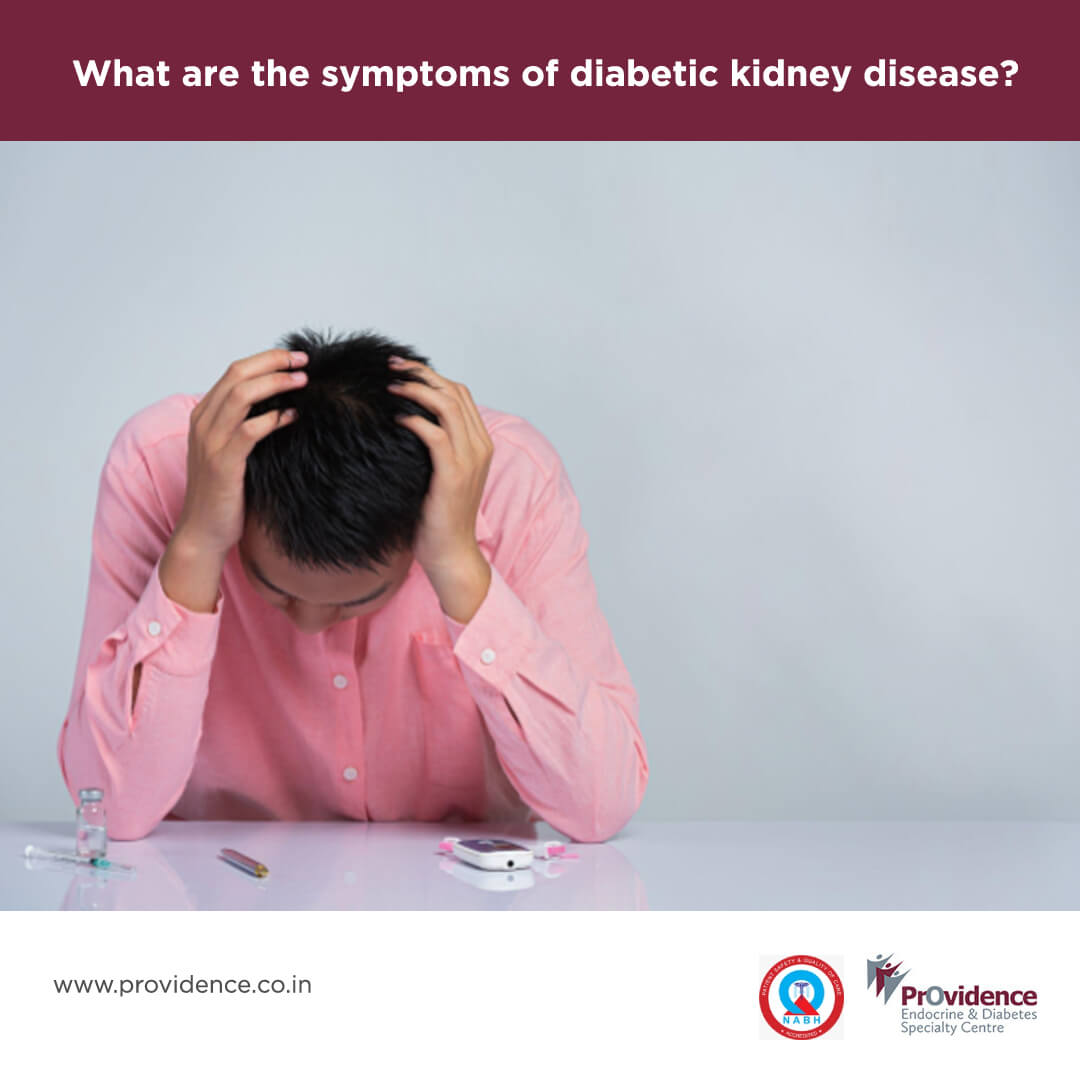Diabetic kidney disease (DKD) is a complication of diabetes – both type 1 and Type 2 diabetes. It leads to a decrease in kidney function that occurs in some people who have diabetes. It means that your kidneys are not able to function as well as they once did to remove waste products and excess fluid from your body. In the early stages, there may not be any symptoms. The symptoms at first tend to be vague and nonspecific, such as feeling tired, having less energy than usual, and just not feeling well.
As kidney function decreases further, patients may experience various signs and symptoms like swelling of feet, ankles, hands, or eyes, increased need to urinate, difficulty concentrating, shortness of breath, loss of appetite, nausea and vomiting, persistent itching, fatigue, reduced need for insulin or diabetes medicine and worsening blood pressure control. The presence of frothing of urine is an important sign of diabetic kidney disease. Sometimes high blood pressure which is difficult to control may be a sign of progression of kidney disease. Many people with DKD also have diabetic retinopathy (diabetes affecting the eye). Hence screening the eye is an important part of managing people with DKD.
Since DKD does not cause symptoms in early stages, it is important to get the blood glucose and blood pressure controlled consistently. Even in the absence of any symptoms, it is important to see a doctor regularly and undergo periodic check-up of blood pressure, urine (for protein), kidney functions and screen for complications.
Author
Dr.Tittu Oommen



